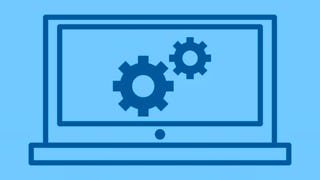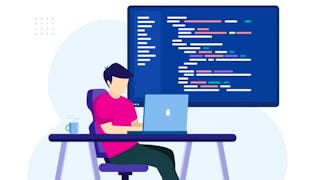System Programming
System Programming is the activity of programming computer system software, responsible for managing and controlling computer hardware, thereby providing a platform for running application software. Coursera's System Programming catalogue imparts you with the knowledge and skills to create, maintain, and develop system software. You'll learn about concepts such as low-level programming, device drivers, kernel development, memory management, multi-threading and synchronization, and process communication. By mastering tools and languages like C, C++, and Assembly, you'll be able to create efficient and optimized system programs, thereby enhancing your competency as a system software developer, computer engineer, or a related profession.
23credentials
74courses
Most popular
 Status: Free TrialFree TrialD
Status: Free TrialFree TrialDDuke University
Specialization
 Status: Free TrialFree Trial
Status: Free TrialFree TrialSpecialization
 Status: Free TrialFree TrialD
Status: Free TrialFree TrialDDartmouth College
Specialization
 Status: Free TrialFree TrialD
Status: Free TrialFree TrialDDuke University
Course
Trending now
 Status: Free TrialFree TrialU
Status: Free TrialFree TrialUUniversity of Michigan
Specialization
 Status: Free TrialFree TrialD
Status: Free TrialFree TrialDDuke University
Specialization
 Status: Free TrialFree TrialD
Status: Free TrialFree TrialDDartmouth College
Specialization
 Status: Free TrialFree Trial
Status: Free TrialFree TrialSpecialization
New releases
 Status: Free TrialFree Trial
Status: Free TrialFree TrialSpecialization
 Status: Free TrialFree TrialP
Status: Free TrialFree TrialPPackt
Specialization
 Status: Free TrialFree Trial
Status: Free TrialFree TrialCourse
 Status: PreviewPreviewB
Status: PreviewPreviewBBirla Institute of Technology & Science, Pilani
Course
Filter by
SubjectRequired *
Required
*LanguageRequired *
Required
*The language used throughout the course, in both instruction and assessments.
Learning ProductRequired *
Required
*Build job-relevant skills in under 2 hours with hands-on tutorials.
Learn from top instructors with graded assignments, videos, and discussion forums.
Learn a new tool or skill in an interactive, hands-on environment.
Get in-depth knowledge of a subject by completing a series of courses and projects.
Earn career credentials from industry leaders that demonstrate your expertise.
LevelRequired *
Required
*DurationRequired *
Required
*SubtitlesRequired *
Required
*EducatorRequired *
Required
*Results for "system programming"
Sort by: Best Match







